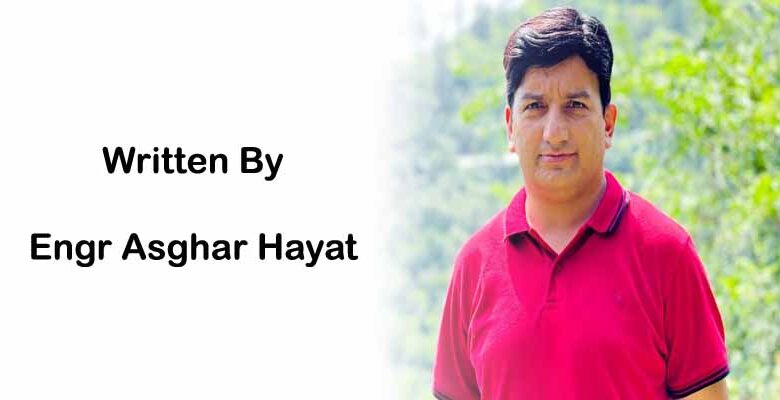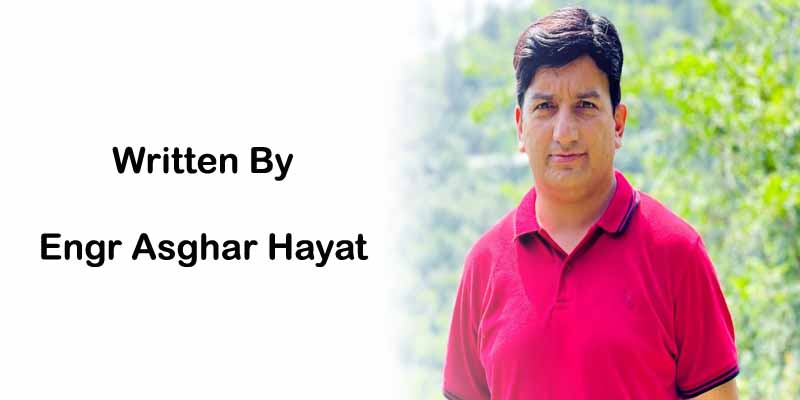Combating Solid Waste Burning in Pakistan’s Cities

Written by: Engr Asghar Hayat
Burning of solid waste poses a grave environmental threat, releasing toxic chemicals into the air, soil, and groundwater. The combustion of waste, whether in open fires or incinerators, results in the release of harmful substances into the air as smoke and into the soil and groundwater as ashes. Waste containing mercury, lead and other heavy metals further compound the issue by releasing these poisons into the environment when incinerated.
The practice of open burning of waste is prevalent across many cities in Pakistan, including the capital city, Islamabad. The burning of agricultural, industrial, and municipal waste in the country has emerged as a serious risk to air quality and public health, contributing to the formation of smog. Hazardous emissions, such as particulate matter, dioxins, and Volatile Organic Compounds, are significant contributors to smog, leading to respiratory issues and cardiovascular problems.
In major cities like Lahore, smog has become a persistent problem over the years, significantly impacting the lives of residents. The resulting health problems are extensive, with air pollution increasing the risk of preexisting conditions such as diabetes, lung diseases, asthma, heart disease, and cancer. On average, the life expectancy of Pakistanis is reduced by two years due to pollution, while residents of Lahore face a staggering reduction of five years.
In Islamabad, air pollution has surged to dangerous levels, particularly endangering the health of vulnerable groups such as the elderly, women, children, and those with respiratory diseases. The dry winter season and insufficient rain have exacerbated the issue, prompting the National Disaster Management Authority (NDMA) to issue advisories, urging residents to wear face masks amid worsening air quality.
The Institute of Urbanism (IoU), established in April 2019 as a result of the citizens’ movement called Reclaiming Green Islamabad (RGI), recently organized a session on the open burning of waste and its impact on climate change. The event featured Dr. Mansoor Ali from the Royal Academy of Engineering as the chief guest. Dr. Mansoor Ali, with over 37 years of experience in international development focusing on solid waste management, sanitation, and MEAL, serves as an advisor to The Royal Academy of Engineering on the Engineering X program to reduce health and safety risks from waste burning.
Ayesha Majid of IoU highlighted the global scale of the issue, noting that annually, 1 billion tons of solid waste are openly burned worldwide. Approximately 26% of global waste is burned at the residential level, while 15% is burned at dump sites. In Pakistan, open waste burning contributed 0.9 Mt CO2e in the year 2017-18. Factors influencing this practice include an improper waste management system, limited access to alternatives, sociocultural perceptions, agricultural practices, and regulatory enforcement. IoU’s campaign against open burning, named “Eco Heroes,” encourages citizens to report incidents directly to authorities through a dedicated WhatsApp group. The organization is actively involved in awareness campaigns and policy advocacy.
During the session, Sardar Khan Zimri, DG CDA Water Management, highlighted Capital Development Authority’s efforts to address the issue of open burning of solid waste. Actions such as fining citizens for water wastage have resulted in increased awareness and behavioral changes. Similar measures are being enforced to curb waste burning, and waste collection challenges from rural areas are being addressed.
Raina Saeed, Chairperson of the Islamabad Wildlife Management Board (IWMB), mentioned challenges in imposing fines near Margalla Hills National Park due to unapproved rules. Opposition to installing garbage bins along hiking trails, to prevent monkeys from spreading waste into the forest, has added complexity to waste management in the region.
Dr. Mansoor Ali emphasized the link between waste burning and climate change, highlighting the creation of greenhouse gases. Improperly disposed waste in cities can lead to sewerage line blockages and flooding. Plastic waste, a significant aspect of solid waste, poses dangers as it takes years to decompose and can transform into microplastics that enter the human body through inhalation, causing various diseases. He emphasized that open burning is an immediate event, not in a regular pattern, and called for a long-term strategy over 5 to 10 years. Data collection on key aspects of the issue is crucial, and he stressed the importance of alternatives rather than solely relying on fines or punishments.
Participants in the session called for urgent action, suggesting that the government and city administration declare a climate or environmental emergency in the city. Measures should be taken to prevent further deterioration of air quality, avoiding a scenario where Islamabad faces the same air pollution and smog challenges as Lahore. Stringent regulations and laws should be formulated and enforced to curb the open burning of solid waste, which contributes significantly to worsening air quality.




